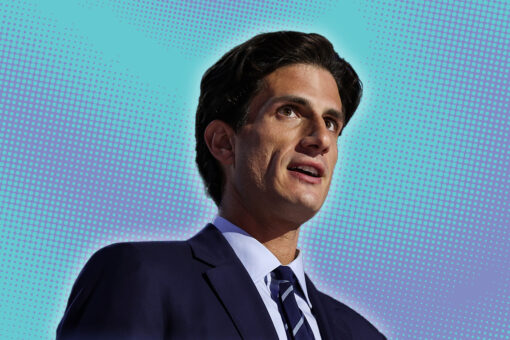I pulled my car into the synagogue’s parking lot, turned off my phone, and took a shaky breath. I opened the door, stuck one foot out, then again retreated and slammed it shut. The shallow and familiar repetitions of Top 40 radio began playing from the speakers, but summer love and wild nights out were far from my mind.
What if I go in the wrong entrance? Will my outfit be acceptable? Would anyone who knows me believe this is what I’m doing on a Friday night?
As I saw a man approach, I leapt out in the hopes of following him. “Good Shabbos,” he greeted me easily. For some reason, I responded with an awkward wave.
In the past, an unshakeable sense that I was always doing the wrong thing had characterized my experiences with religion. First, there was my parents’ decision to raise my sister and I largely without an organized belief system. On Christmas and Easter, we would shuffle into church, go through the motions of sit, stand, sing, sit, pray, then shuffle out, dazed and happy it was over so we could eat. The only specific detail I remember from each service was when the lights would dim, and the preacher would intone that it was time to formally ask Jesus into our hearts, this way we would be granted eternal life. I repeated this ritual each year with the silent panic of a child contemplating her own mortality. Of course I wanted to believe in the afterlife, so, sure, I’d be a Christian.
But sporadic church attendance made me feel like an outsider. When I began going to a weekly youth group with my best friend, I felt like the only member who couldn’t just accept the commandments and ancient teachings, instead questioning everything. “What’s wrong with being gay?” “Why do you have to wait for marriage to have sex?” “Seriously, ‘Women, submit to your husbands?’”
I was a church leader’s worst nightmare. In leaving the church, I learned not to ask my questions out loud. They burrowed inside me, until eventually my brain begged to be done with the exhausting inner-monologue. I became an atheist. Or, maybe, I had always been an atheist. Either way, I fast-walked away from street preachers, refused to bow my head during sorority ritual prayers, and never stepped into a place of faith willingly (I even stopped singing at the family-mandated Christmas services). This lasted for six years.
The only other person I knew who was as awkward and tight-lipped about religion as me was my dad. When his mother got remarried to a Jewish man, he began practicing the religion. He hardly ever talks about it, so here’s all I know: He struggled with Hebrew and he played the violin in his synagogue. The marriage ended, and he left the faith.
So how did I end up visiting a synagogue? Oddly, the progressive social justice values that I had once found so incompatible with religion led me to Judaism. As I participated in marches for gun control, economic justice, and acceptance of refugees, I continually heard from speakers who were rabbis. At the forefront of their speeches were several ideas I connected with: 1) that humans are tasked with repairing a broken world, 2) that if you see wrongdoing, you should hate it in your heart and speak out against it and 3) that there are many different interpretations of the Torah and of God.
I heard from women rabbis, LGBT rabbis, and even rabbis who had converted to Judaism. Intrigued by the idea that religion could incorporate diverse voices, I started reading publications like The Forward, New Voices, and, yes, Alma. I started praying again and found comfort in expressing gratitude and asking for guidance, even though I couldn’t be sure who or what was listening.
As I felt this unexpected pull, I started to get scared. The old ideas came flooding back: If I were to become religious again, I would have to be perfect. Religion was just incompatible with who I was.
Then, a new idea entered my mind: Just learn about it.
While I’ve thought about converting to Judaism, that idea remains far down the road and intangible. I realized what I really wanted to do, right now, is begin to overcome my preconceptions and unresolved fears.
So, I stepped into a place of faith, this time willingly, and again feeling like an outsider. I didn’t understand all the prayers. I didn’t always stand at the right time.
Then came the reciting of a verse I will always remember: Pray like everything depends on God, act like everything depends on you.
Maybe this seems incredibly simple or cheesy, but it depends on me to treat people kindly and without judgment. When I left the church six years ago, even though I saw myself as the ultimate free spirit with no judgment towards others, I had unknowingly strayed away from this key lesson. Because I thought religion had judged me, I began judging it. I’m ashamed of the thoughts I’ve had about religious people, and ashamed that for so long I esteemed myself as smarter, more compassionate, or more in-touch with reality.
I really do believe that I was meant to learn that lesson, at that synagogue, and that some force wanted to impart it on me. So, if I believe that, am I still an atheist?
I believe it depends on me to be open to new experiences and new ways of seeing the world. It depends on me to admit that I might not know or be able to explain everything.
So, my belief system is in-flux, and I’m no longer afraid to say so.
Header Image: Detail of ceiling, Synagogue, Szeged by Tim Waters. Found on Flickr.



